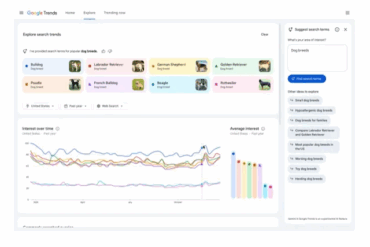You might have mixed feelings about learning how to start writing. On one hand, tips for beginner writers get you fired up about becoming a writer. On the other hand, content creators are easy targets for criticism.
All of the reasons not to start freelance writing
I’m focusing on the negative aspects of having a presence online because I think they can deter people from starting in the first place.
And when you don’t start a project you want to explore, you leave the content creation to other people who are willing to take risks and expose themselves to all of the potential criticism — as you simultaneously increase your own chances of becoming a cranky critic.
More than just the need to overcome perfectionism in your business blogging, one simple practice that allows you to create content on a regular basis is getting comfortable with “good enough.”
What’s “good enough?”
People with good intentions make errors and don’t always publish groundbreaking work.
If you publish consistently, you’re not always going to be sharing great stuff. Some of it will just be okay.
This post might just be okay. I’m publishing it anyway.
“Good enough” helps you flow with your content-creation momentum, instead of fearing unintentional mistakes or unavoidable mediocrity.
How to start writing with confidence
I’m clearly the last person to tell you it’s okay to produce uninspired, generic content, but sometimes you can be your own worst critic and stop yourself from publishing an important part of your content marketing journey.
Try these five tips for doing your best, honoring your work, releasing it, learning from it, and moving on to your next piece of content to grow as a creator.
1. Remember you’re not for everyone
If you want to get ingredients for a Boring Content recipe, look in the Try to Please Everyone aisle at your local Content Formula Store.
You’re never going to satisfy every type of reader, listener, or viewer.
I’ve seen content creators make the most thorough disclaimers to clarify their intentions and someone always still misinterprets their message and finds a way to get offended.
The quicker you remember that some people will never like you, no matter how hard you try, the quicker you stop being preoccupied with what others think of you and get back to producing solid work.
People also have the right to make snap judgments about your blog post ideas, and you never have time to win them over.
Let those people go.
Trust that the right people stick around.
And you don’t have to be “perfect” for the right people to pay attention to your brand of content; they just get it.
2. Cheer on your ideal audience member
Ultimately, it’s not about you.
If you want to help someone, focus on helping them to overcome writer’s block.
You don’t focus on the potential weak parts of your writing that you might have missed.
There’s always a reason to dislike a piece of content you just created.
If your ideal audience member gets a lot out of your content, they’d be disappointed if you stopped publishing.
When you care about who you create content for, the opinions of the wrong people pull less weight.
Wouldn’t it be a shame if you quit doing your thing because of someone who doesn’t matter anyway?
3. Add value as quickly as possible
When you provide value fast, people don’t have to search for what they need or want.
A lot of the time you’ll need to start writing first and then narrow down what you want to say.
That’s why your writing habits should include sharp editing. Don’t hold on to parts that don’t serve.
But don’t second-guess the topic you want to share, either.
Something you think is simple could be a revelation for someone else.
Clear and straightforward messages delivered with your specific style and approach is how you attract and expand your audience.
4. Set boundaries around your work when you start freelance writing
Even though you put aspects of yourself into your work, when you separate yourself from it, it helps prevent you from taking criticism personally.
It’s something you produced — a performance of sorts — but it’s not you.
It’s just a part of what you do, and if you work long enough and hard enough, you’ll be extremely proud of what you’ve created. You’ll also have a portfolio that helps you make money as a freelance writer.
No one can take that pride away from you. You earned it.
To get to that point of satisfaction, set rules for how you handle your content business.
Decide if:
- People can contact you directly, and how
- You’ll allow comments
- There are some personal subjects you won’t talk about
Setting boundaries like those ahead of time reduces extra things to think about when you’re involved in your day-to-day tasks, allowing you to be more productive.
5. Befriend the improvement process
“All our final decisions are made in a state of mind that is not going to last.” – Marcel Proust
Don’t pay too much attention to your own judgments of what is good or bad writing, when it comes to your own content.
Although it’s easy to be hard on yourself, conversely, something you think is great right now might seem only average to you in the future.
Embracing “good enough” allows you to finish a project so you have a starting place to grow from — regardless of your current opinions about it.
As long as you aim for producing something meaningful, making mistakes is not a reason not to publish.
If you find a mistake later on, you can always fix it (if possible) and learn from it (always possible).
And when you do look back at a piece of older content and can’t find anything to improve, it’ll become an evergreen part of your portfolio.
Start writing today to build your own thing
If you can get past doubt and criticism — from within and without — you can build something of your own.
And get excited about the endless possibilities for content that makes a positive impact.
By Stefanie Flaxman
Stefanie Flaxman is Copyblogger’s Editor-in-Chief. Check out her masterpiece blogging series on YouTube.





